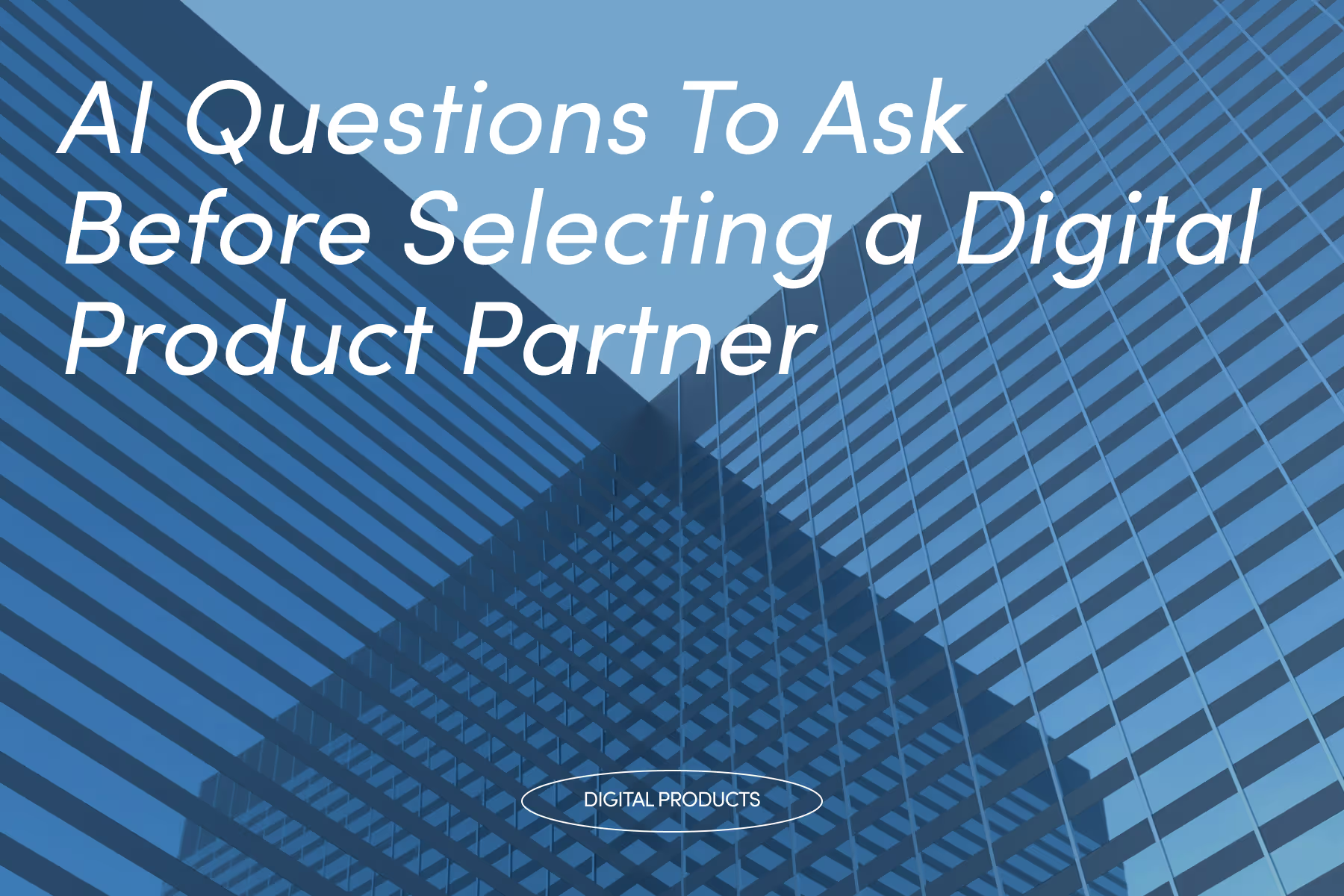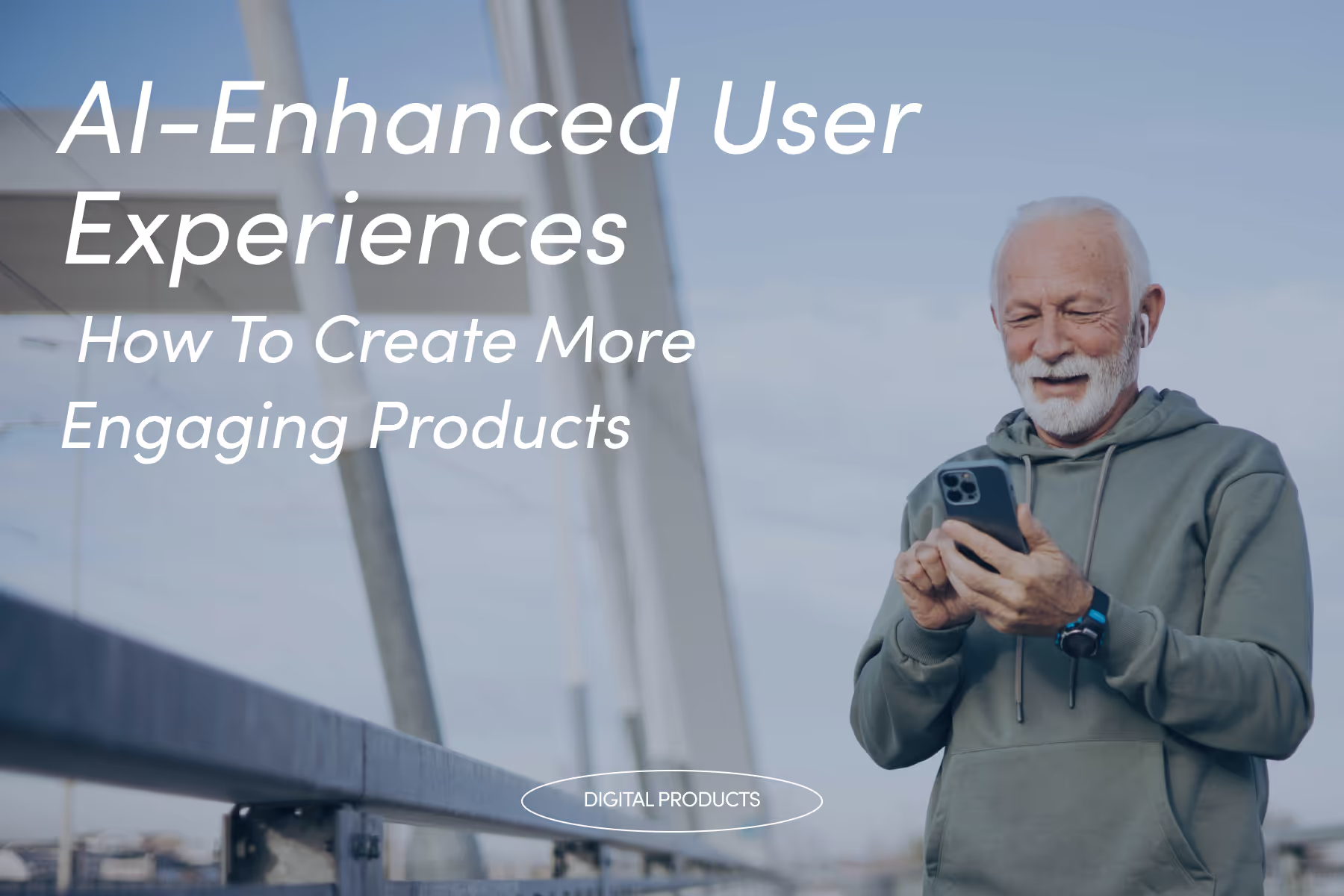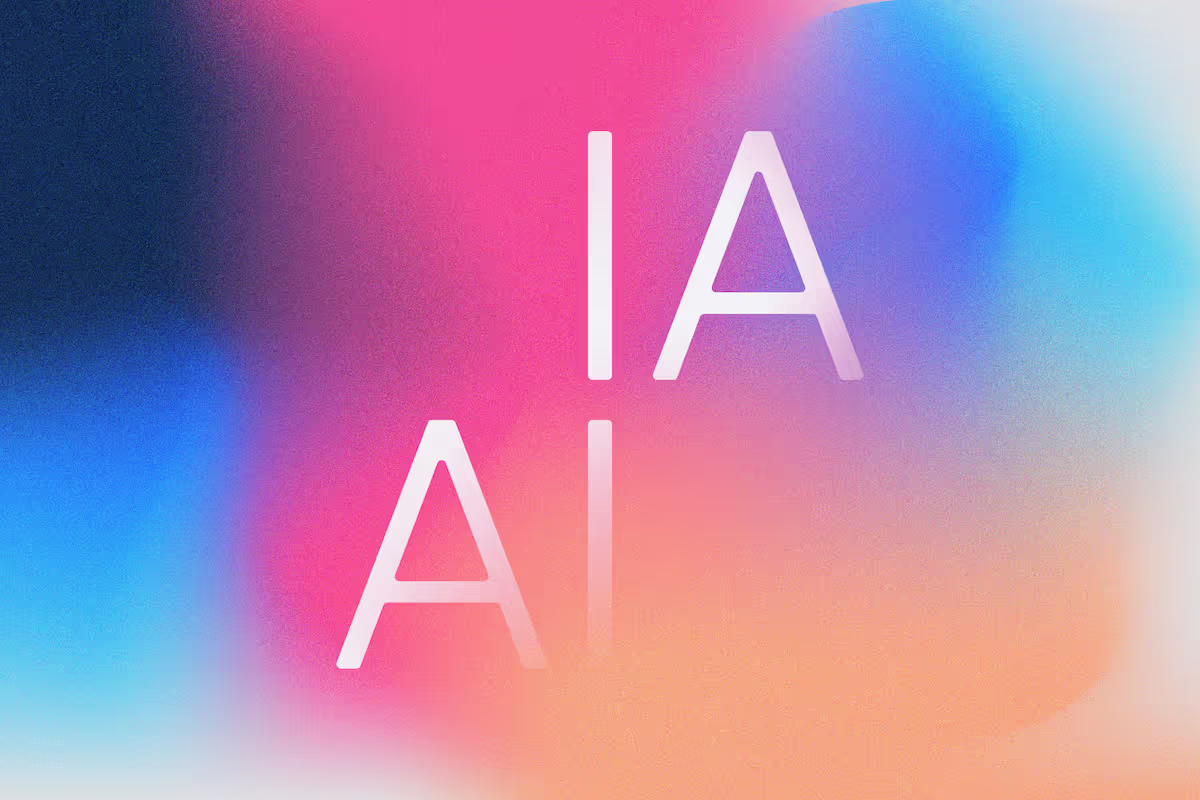Sep 2024

Selecting an AI-savvy digital product partner is daunting. Choose wrong, and you risk ethical missteps, poor user experience, or ineffective AI integration. The consequences? Wasted resources, damaged reputation, and missed opportunities. Don’t leave your AI product to chance. Our guide offers crucial questions to ask, helping you identify a partner who prioritizes responsible AI, user-centric design, and ethical considerations.

AI integration is reshaping digital products, but not all approaches are equal. Understanding a partner’s AI expertise is crucial for project success. And, as AI capabilities grow, understanding concepts like agentic AI and the role of the cloud are both crucial for future-proofing your digital products.
The following questions will reveal their capability to implement AI responsibly and effectively.
When selecting a digital product partner for AI integration, look for a company that prioritizes:
A strong partner should articulate their approach to balancing the privacy benefits of on-device AI with the sophisticated capabilities of cloud processing, staying ahead of evolving AI technologies and privacy regulations.
“Real people—real intelligence. The right team will tap into AI’s potential the right way. That means prioritizing user privacy and ethical considerations as they do for every implementation.”
An ideal partner will demonstrate experience from basic AI features to sophisticated agentic systems. Look for:
The AI landscape changes monthly, requiring adaptive architecture:
A comprehensive partner should provide examples across the AI maturity spectrum:
Examples should demonstrate human centricity and business impact, not just technical capabilities.
Look for a partner who emphasizes the importance of human judgment alongside AI capabilities. They should describe a process where AI augments human decision-making rather than replacing it entirely.

Responsible AI implementation should be non-negotiable. Use these questions to ensure your potential partner’s AI approach is transparent, unbiased, and aligned with the highest standards in responsible AI development.
Look for a commitment to clear communication about AI use in the product, possibly including in-app explanations of how AI is used and how it affects user experience.
Look for a detailed approach to identifying and mitigating bias, including diverse data sets, regular testing, and a willingness to adjust algorithms when bias is detected.
Ask how the partner minimizes data use—do they process data directly on devices or use techniques like anonymization?
Ethical considerations vary between on-device and cloud AI:
Your partner should have a clear decision framework for choosing between local and cloud processing, understanding when on-device AI improves privacy and performance versus when cloud-based AI provides superior capabilities.
Look for a partner with a proven track record of taking AI projects from concept to launch. Ask about their completion rate, what they learned from any projects that didn’t reach market, and how they mitigate the huge risk of spending full budget without a viable product.
Strong partners have systematic approaches to de-risk AI projects:
They should also have processes for evaluating AI performance, gathering user feedback, and iteratively improving features over time. The right AI partner should guarantee project completion, not just promise impressive technology demonstrations.
Look for partners who can help you move from "What could AI do?" to "What specific business problems can AI solve today?" They should have systematic approaches to measuring concrete returns from AI investments and experience implementing AI that delivers clear ROI rather than just impressive demonstrations.

When implemented thoughtfully, AI can enhance user experiences. The following questions will help you understand how a potential partner leverages AI to create more engaging, personalized, and accessible digital products.
Look for examples of how AI can tailor content, recommendations, or interfaces based on user behavior and preferences while respecting privacy.
For example, AI can enhance features like voice recognition, text-to-speech, or adaptive interfaces to make apps more accessible to all users.
Look for an understanding of when AI is appropriate, when human interaction is preferable, and what strategies to integrate both seamlessly.
Ask for concrete case studies demonstrating measurable improvements in user engagement through AI implementation. Remember, the right partner should have technical expertise and a clear understanding of AI implementation’s ethical implications and responsibilities.
Unlike traditional software with predictable logic, agentic systems require special attention to explainability:
Building user confidence in AI systems that take actions requires:

At InspiringApps, we don’t just integrate AI—we do it responsibly. Our AI philosophy:
Let’s shape the future of AI together.
You know it when you see it: design that delivers. The best digital products are intuitive, engaging, and one of a kind. See award-winning examples and more in our branding showcase.
Download the branding showcase